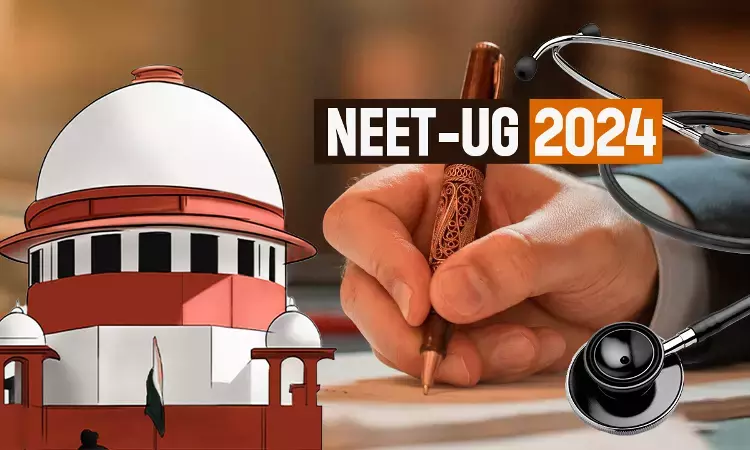The NEET-UG 2024 paper leak case emerged as a significant controversy in India, exposing critical vulnerabilities in the country’s medical admissions process. The incident was discovered when discrepancies were reported by several students who noted that the exam questions they encountered during the test did not align with the officially released materials. As allegations spread, it became increasingly evident that unauthorized access to the question paper had occurred, prompting widespread concern among students, parents, and educational authorities alike.
In the wake of this revelation, the implications for students were profound. A perceived lack of fairness and integrity in the examination process left many candidates anxious about their prospects for medical school admission. The leak raised questions regarding the credibility of not only the NEET-UG examination but also the regulatory framework governing medical admissions in India. Stakeholders in the education sector voiced their concerns over how such an incident could further undermine public trust in the examination system, particularly given its significance for aspiring medical professionals.
Key players in this unfolding drama included the National Testing Agency (NTA), which conducts the NEET-UG examinations, as well as various student advocacy groups. Following the discovery of the leak, legal proceedings commenced, with several individuals allegedly connected to the leak being apprehended. The case culminated in a petition that reached the Supreme Court, which was tasked with determining the validity of the claims and the appropriate course of action to rectify the situation.
The reactions from various stakeholders were notably polarized; while some called for stringent measures to ensure transparency and accountability in examination practices, others expressed skepticism about the efficacy of proposed reforms. The Supreme Court’s involvement ultimately signified a judicial recognition of the gravity of the situation and set the stage for future policy changes in medical admissions, thereby indicating a new direction for the integrity of assessments within the education system.
Supreme Court’s Ruling and Its Implications
The Supreme Court’s recent ruling to close the NEET-UG 2024 paper leak case has garnered significant attention amidst ongoing discussions surrounding educational integrity in India. The decision, which stems from an extensive examination of the allegations, reflects the court’s commitment to uphold the principle of fair examination processes in the medical admissions landscape. By terminating the case, the court has emphasized the importance of focusing on academic merit rather than speculation driven by unfounded claims of irregularities.
In its ruling, the Supreme Court carefully considered the evidence presented, highlighting the lack of substantive proof that could substantiate the allegations of a paper leak. This legal reasoning not only reiterates the need for concrete evidence in accusations but also sets a potential precedent for how similar cases will be treated in the future. As educational institutions and governing bodies navigate challenges in maintaining integrity in examinations, this ruling may serve as a guiding principle for addressing disputes while safeguarding the rights of students and institutions alike.
The immediate implications of this verdict are profound for both students and medical colleges across the nation. With the clarification brought forth by the Supreme Court, students can proceed with their preparations with a sense of reassurance, knowing that their efforts are being recognized as valid within a legally sound framework. Furthermore, medical colleges will benefit from a clearer path to conducting admissions based on standard protocol without the cloud of doubt caused by allegations. This decision ultimately enhances the trust within the system, reinforcing the necessity of maintaining examination integrity and the overarching fairness of educational practices.
Moreover, the ruling opens discussions regarding the broader implications for the justice system in educational matters. It urges stakeholders to reassess the safeguards in place to deal with such allegations, fostering a healthier environment for future assessments. Thus, the Supreme Court’s closure of the NEET-UG 2024 paper leak case is not merely a conclusion to a specific incident but rather a pivotal moment in the landscape of medical admissions in India.
Closes NEET-UG 2024 Paper Leak Case
Following the Supreme Court’s decision to close the NEET-UG 2024 paper leak case, the Central Government has taken a proactive stance in addressing the concerns that have emerged from this incident. Officials from the Ministry of Education have been vocal in their commitment to ensuring the integrity and transparency of medical admissions in India. In a recent statement, a government spokesperson emphasized that the administration is determined to implement necessary reforms aimed at safeguarding the examination process. The objective is to foster a fair and reliable system that upholds the values of meritocracy and transparency.
To avert future incidents of paper leaks, the Ministry of Education has proposed a series of comprehensive measures. One significant step includes the introduction of advanced technology solutions, such as secure online examination systems equipped with robust surveillance and monitoring mechanisms. These innovations are envisioned to not only enhance security but also to facilitate real-time tracking and data analysis during examinations. Furthermore, the government is analyzing current examination protocols and is expected to promote stricter regulations governing the conduct of examinations and the management of examination materials.
The importance of transparency in the examination system cannot be overstated. It is vital that all stakeholders, from students to educational institutions, have confidence in the fairness of the assessment process. As part of their response, the government plans to engage with various educational boards and institutions to establish clearer guidelines and best practices for conducting examinations. Initiatives focused on ongoing reforms reflect a commitment to improving academic integrity, thereby restoring public faith in the system.
In conclusion, the government’s response to the NEET-UG paper leak incident signifies a fundamental shift towards a more secure and transparent examination process. By prioritizing integrity and accountability, the administration aims to prevent similar occurrences in the future, ultimately benefiting prospective medical students and the educational landscape as a whole.
Reactions from Students, Educators, and the Public
Following the Supreme Court’s closure of the NEET-UG 2024 paper leak case, stakeholders expressed a varied spectrum of emotions and sentiments. Students, particularly those who participated in the NEET-UG examination, voiced a mix of relief and skepticism. Many candidates initially feared the ramifications of the leak on their scores and future prospects. With the court’s decision, students are hoping for a return to fair competition based on merit rather than any malpractice. They communicated a renewed commitment to their studies, feeling more assured that their hard work will be genuinely recognized.
Educators and academic institutions displayed a positive outlook as well. Many expressed support for the court’s decision, suggesting that it restores faith in the integrity of the examination process. However, educators also voiced concerns about the underlying issues that permitted such leaks to occur, emphasizing the need for more robust systems to eliminate any possibility of future occurrences. They argued that the NEET-UG process should be re-evaluated to bolster both security and trust, ensuring that aspirants can focus on preparing for their futures without fear.
Public sentiment overall leaned towards a desire for transparency and integrity in the NEET-UG examination system. Many parents shared their concerns regarding the fairness of admissions processes and heightened calls for stricter measures to protect the integrity of medical examinations. The NEET-UG issue has reignited discussions about the importance of ensuring that assessments reflect true competencies rather than external influences. Moving forward, stakeholders are advocating for enhanced measures, including technological advancements and stricter regulatory frameworks, to ensure that the medical admissions process is both secure and fair for all candidates.




